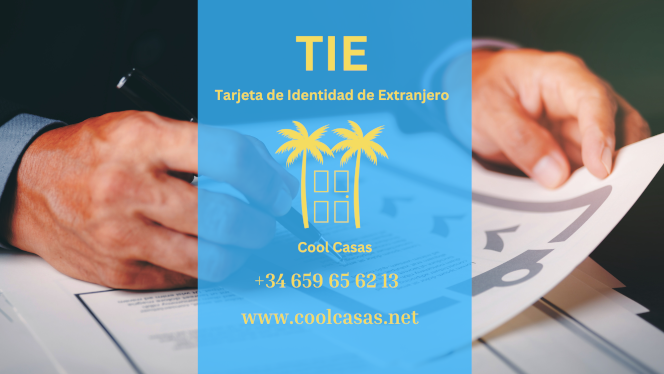
TIE - Tarjeta de Identidad de Extranjero
A TIE, or Tarjeta de Identidad de Extranjero, is a foreigner's identity card in Spain. Its primary purpose is to provide official identification and documentation for non-Spanish residents, allowing them to legally reside in and conduct various activities in Spain. Here are the main purposes of a TIE:
Legal Residence: A TIE serves as evidence of legal residence in Spain for non-Spanish citizens. It is an essential document for individuals who plan to live in Spain for an extended period, such as expatriates, students, and retirees.
Identification: The TIE is a widely accepted form of identification within Spain. It's often required for various administrative and legal transactions, such as opening a bank account, signing rental agreements, or obtaining a driver's license.
Work Authorization: For non-European Union (EU) citizens, the TIE often includes information about their work authorization status. It indicates whether the holder is allowed to work in Spain and specifies any employment-related conditions.
Access to Services: Many public services in Spain, such as healthcare and education, may require individuals to present a TIE as proof of legal residence in the country. This ensures that residents can access these services.
Travel within the Schengen Area: A TIE for non-EU citizens may include the right to travel within the Schengen Area (a group of European countries that have abolished border controls). It can serve as a substitute for a visa when traveling to Schengen countries.
Legal Transactions: When buying property, starting a business, or engaging in legal transactions in Spain, non-Spanish residents often need to provide their TIE as part of the documentation process.
Renewal and Extension of Residence: The TIE may need to be renewed or extended to maintain legal residence in Spain. The card's expiration date and any necessary renewals are indicated on the card.
Family Reunification: Non-Spanish residents in Spain who wish to be joined by their family members (spouse, children, etc.) often need a valid TIE to initiate the family reunification process.
Tax Identification: The TIE may also serve as a tax identification number (NIE) for non-resident individuals who need to fulfill tax obligations in Spain, such as paying taxes on property or income earned in the country.
It's important to note that the specific rights and conditions associated with a TIE can vary depending on an individual's nationality, visa type, and circumstances. The TIE is a crucial document for non-Spanish residents in Spain, as it facilitates their legal residence and participation in various aspects of Spanish life.

